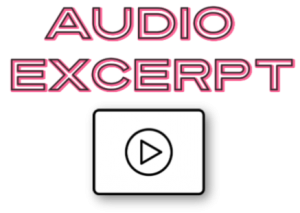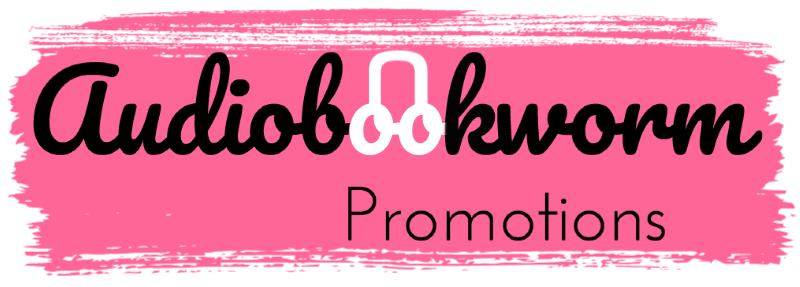Presenting the Lady (The Lady Series) Historical Romance By: Daisy Landish Narrated by: Harry Frost ➱ Audio Tour

Author: Daisy Landish
Narrator: Harry Frost
Series: Series: The Lady Series, Book 2
Length: 1 hours 8 minutes
Publisher: Daisy Landish
Released: Oct. 21, 2021
Genre: Historical Romance
Presenting the Lady is the second stand-alone regency romance story in The Lady series. Arabella, nearing the time she will be presented and have her first season, is a little zealous and gets into the type of scrapes that could easily cause a scandal. Her brother, the Earl of Sunningdale and her friend, the new Countess, do everything they can to keep her from inadvertently sabotaging her future. Follow the family as they feud, attend balls, hunt, and hatch scheme after scheme to get Arabella safely launched into society.
 When she’s not writing romance books, Daisy Landish enjoys hiking at dawn and riding into the sunset on her trusted steed, Rosebud.
When she’s not writing romance books, Daisy Landish enjoys hiking at dawn and riding into the sunset on her trusted steed, Rosebud.

Harry Frost is an English voice actor specialising in audiobook narration and production. He’s passionate about the power of the audio medium to bring literature to life in every sense; to turn books into true companions for life as it is lived, rather than things one must escape the world and defer responsibility to read. His studio is in rural Leicestershire, he has recently found an unlikely love of Economics, and he mixes a really good Manhattan.

Q&A with Narrator Harry Frost
- Now, Harry; first things first. How did you get into narrating audiobooks?
- It was a very gratifying case of opportunity finding me. I had always been a big audiobook listener, I think I joined Audible the year it started and haven’t missed a month’s credit since! Someone in a pub told me about ACX, a website/general platform through which you could audition and produce audiobooks. I was impersonating a market analyst in rather a dull office at the time, so it strongly appealed. First week on the site, I was hired on a profit-sharing basis, the book did better than I ever expected, and in 2018 I quit my job (satisfying, not going to lie) and started narrating and voice acting full time.
- What about this series compelled you to audition as narrator?
- Even in the audition sample I could see that Daisy had done a wonderful job at extracting what is best about the Regency setting—the elegance, the scandal and gossip, the feeling of emotional repression and its correspondingly cathartic release—and combined it with charming, funny and lovable characters. There’s a lovely pace and clarity to her writing that packs a lot into a small number of pages, so that you feel like you're getting a sort of refined essence of romance. That, and aristocratic English settings are rather my ‘wheelhouse’, as I believe they say. It’s a voice type thing, I suppose, and then there’s my frightfully posh accent and boarding school education.
- How did you decide how each character should sound in this title?
- The wonderful thing about working with a writer who really knows their characters is that this part is easy; the character sort of tells you how they sound by what they say. Of course, I’m just one (male) person, and so there are some very real constraints. In general I have a sort of cast in my repertoire, and tweak as necessary. There are shocks, naturally; at the start of my preparatory read through of ‘Eloping With the Lady’, I was just starting to hear the male lead’s voice and had tried a few lines, and then I read “…apart from his strong French accent…” and thought “…ah”! I love those moments, though, it’s how that sort of internal cast grows, and with the help of some very talented voice and accent coaches I work with (the fabulous Nic Redman and the Californian narrator-turned-coach Karen White to name two), anything is achievable. For me the most important feature isn’t really pitch (luckily!) or even accent, though that’s important, and the most fun to develop. It’s the cadence, the rhythm with which the characters talk and pause and talk again. The writing really helps there; phrases like ’twittering mamas’ are wonderfully evocative, and as a listener I like to hear those kinds of invitations taken up by the narrator. It’s one of the ways I think audio can enhance a book.
- Ah, yes, you mentioned earlier you’re an audiobook listener, too. What do you like best about the format?
- Definitely a huge audiobook fan, they were my introduction to literature, and that turned out well! I studied English literature at university and it’s really enriched my life in all its forms. What I particularly like about the audio format is that you can take it with you as you go about your day. There are places I can’t walk without actually hearing particularly brilliant lines that have stuck with me from when I was there listening to something wonderful. It makes household chores painless, it passes long journeys, and it absolutely smashes those New Year reading resolutions! Having content always on, earphones always in, is admittedly rather a modern curse, and I can absolutely understand that some people want reading to remain something they do exclusively to relax and escape. The nice thing for me is that both options are there.
- Has the recent, rapid rise of the audiobook as a medium affected the art of narration, do you think?
- I’m always a little hesitant to claim it as an art; I think of it more as a craft. An artist, even when he’s adapting, is encouraged to put something original in, something that pushes the boundaries of expectation. I admit there’s some room for that in the narration of some books, but on the whole I see the narrator’s job as to try and read the words on the way author heard them in his or her head as they wrote, and to bring that to the audience with as little of themselves as possible getting in the way. There are many characters, too, that really can’t be too far from their ’type’, or the story doesn’t work. It’s just for the main characters’ plotlines, and only sometimes, that there needs to be the odd spark of the unexpected or shocking, and less is definitely more in that regard, I think.
- As for changes, I’m pleased to say there’s definitely been a strong increase in quality! Mainly technical; some of the older audiobooks in my library sound like they could have been recorded on a potato, and it does the actors’ performances no favours. But also, as the medium becomes more mainstream and more profitable, there’s also more critical scrutiny. Before their wider availability, audiobooks were produced mainly at cost or by volunteers for pre-literate children and the sight-impaired, and so efficiency and cost were the focus, meaning that some earlier audiobook narrators employed what I call the ‘just get through it’ voice; quite understandably, I must add, and the work they did was incredible all the same, and largely unrewarded in many cases. I very much welcome the trend now—in which I try to participate—of really engaging with and interpreting the story, reading it as though you understand it, and bringing it to the audience in an exciting way.
- Will the market continue to grow, do you think?
- The market for audiobooks? Yes, I think without a doubt; I know I’m not alone in always craving new stories, and I don’t really see an end to that. Literature hasn’t ‘ended’ yet since it was kicked off by, say, Homer or Murasaki Shikibu or whoever. Or, indeed, the first ’narrator’ round the campfire, before them! There are some interesting developments coming, however, which may well change the landscape. AI narration is, I’m sorry to say, looking like a real possibility. It saddens me a bit, not in an anti-progress, Luddite kind of way, but because I strongly suspect that the incentive to make it ‘just good enough’ to take to market will mean that its final form will be even farther short of what we enjoy now with human narrators than might be technologically possible. Still, however much people might prefer human narrators, the lower cost/price could prove too tempting for publishers and listeners, and some narrators would have to leave the market as a result. I’m hopeful, though, that just as e-books didn’t finish off paper books entirely, but drove the latter to be even more beautiful and tactile and ‘bookish’ for want of a better word, there’ll always be at least a section of the audiobook market reserved solely for human narrators to do what they do best; emote!
- What do you say to those who view listening to audiobooks as “cheating” or as inferior to “real reading”?
- Well, evidently I don’t agree, but I do understand where you’re coming from. Not the ‘cheating’ part; it’s not a competition! But it’s true that it’s much harder to dissect an audiobook in the kind of scholarly way you could a physical book. Referencing, skimming, highlighting are all much better done on paper, and so alas the audiobook isn’t quite the instant solution to every Literature undergraduate’s reading list woes that it might at first seem! But again, the combined approach I think is ideal. Audiobook listening is its own skill to some extent, and requires fixed attention if you really don’t want to miss a single thing. But at the same time, the important parts of the story—the parts that are most engaging—stand out in audio naturally, where a reader’s eye might have tired itself out on lengthy descriptive passages and miss the significance of the main event! A good narrator will cue these important points with their performance, and when something does reach out and grab you in that way, the added interest of the human voice reading it aloud, maybe even in the voice of a character, does wonders for memorising quotations that will stay with you a lifetime.
- What bits of advice would you give to aspiring audiobook narrators?
- Read it like you love it.
- What’s next for you?
- I’m very happy reading audiobooks, but one thing I would like to try is a more multimedia narration experience. Something like combining music—matched to the material, like a film score—with the narration of something original, and maybe some visuals, too. I’d love to stretch some creative muscles, in other words; something more like art than the craft I talked about above.
- I’m intrigued by the claim in your bio about the cocktail mixing; care to elaborate?
- Ah yes! Well, as an Arts graduate I naturally spent some time after university working in a bar. A Manhattan is probably my favourite drink; a Sweet Manhattan, specifically. Two measures of bourbon, half a measure of sweet red vermouth (try Cocchi di Torino, it’s transformative), a dash of bitters and a spoonful of maraschino liqueur. Stir with ice and serve with a cherry. Add in an audiobook, and that’s a night to remember!
Click here to view the full tour schedule!
Plugging you into the audio community since 2016.












Comments
Post a Comment